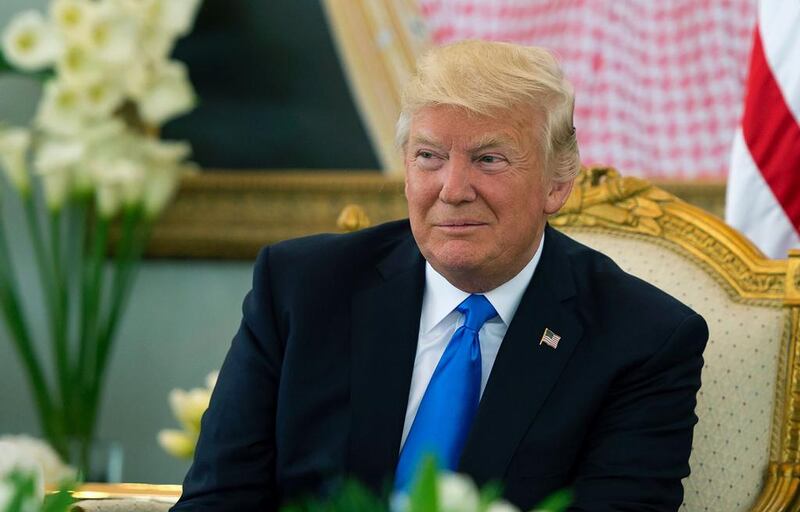An attempted attack on Riyadh was a clear demonstration of threats to Arab allies
As a welcome message to Donald Trump, it couldn’t have been clearer. On Friday, a day before Mr Trump and his entourage arrived in Riyadh for the US president’s first overseas trip, the Houthi rebels fired a ballistic missile towards the Saudi capital Riyadh.
Saudi’s air defences intercepted and destroyed the missile 200km outside the city. But the message was clear: the Houthi rebels don’t seek any form of negotiation or discussion, neither with Riyadh nor with Washington.
As a reminder of what the Saudi coalition has to deal with, it was similarly clear. Such a provocative attack will ultimately prove counterproductive, because the Trump administration is considering stepping up support for the Saudi-led intervention in Yemen. This missile strike must surely demonstrate how the war in Yemen is not only destabilising that country, with severe consequences for Yemenis, but is also bringing Arab allies in the region under threat.
Moreover, Saudi Arabia will be seeking to make sure that Mr Trump understands the connections between different factions in the region. The regional foes who are destabilising the Arab world are frequently connected.
Mr Trump and his administration appear to have heard and understood that message. Just before Mr Trump arrived in Riyadh, the US and Saudi Arabia announced their first joint terrorist designation, of a Lebanese Hizbollah leader. As a message, it was similarly clear. By making such a joint designation, the US was demonstrating its commitment to Saudi Arabia, showing that it agrees with Riyadh’s threat assessments. The designation will target Hashem Safieddine, part of Hizbollah’s executive council, and go some way to containing the spread of the group, which has become a vital proxy for Iran’s influence.
A positive moment, then, and also an opportunity for Saudi Arabia and the wider Gulf region to grasp. This is clearly a moment when Mr Trump is listening and engaged, and in that moment it is essential that the Gulf explains what is needed in the region and what the US can do to support that mission. The Houthi missile hasn’t overshadowed what could be a very important moment in US-Gulf relations, but it provides further and unambiguous evidence of which regional forces are intent on pursuing a disruptive agenda.





